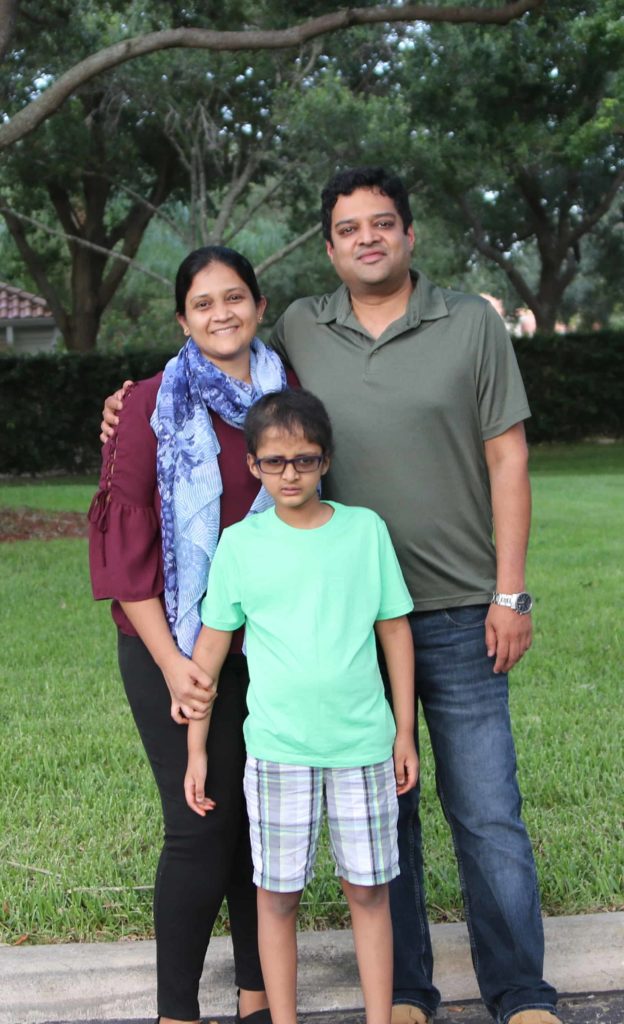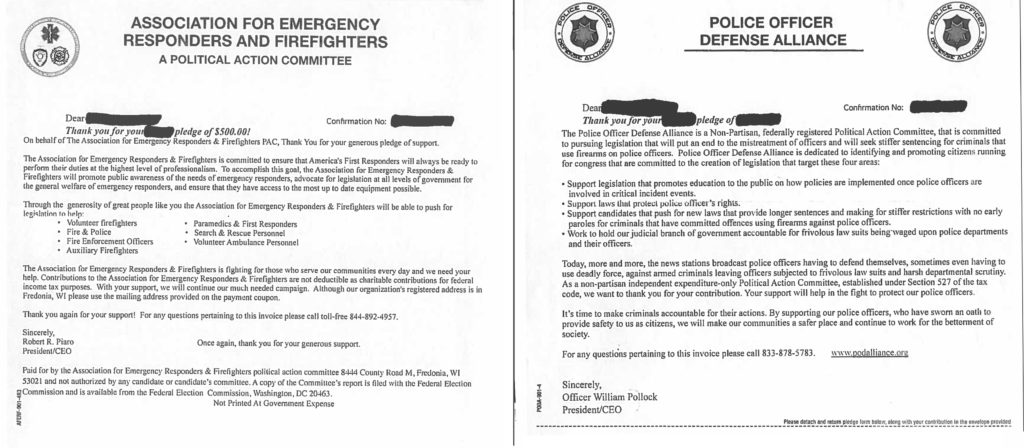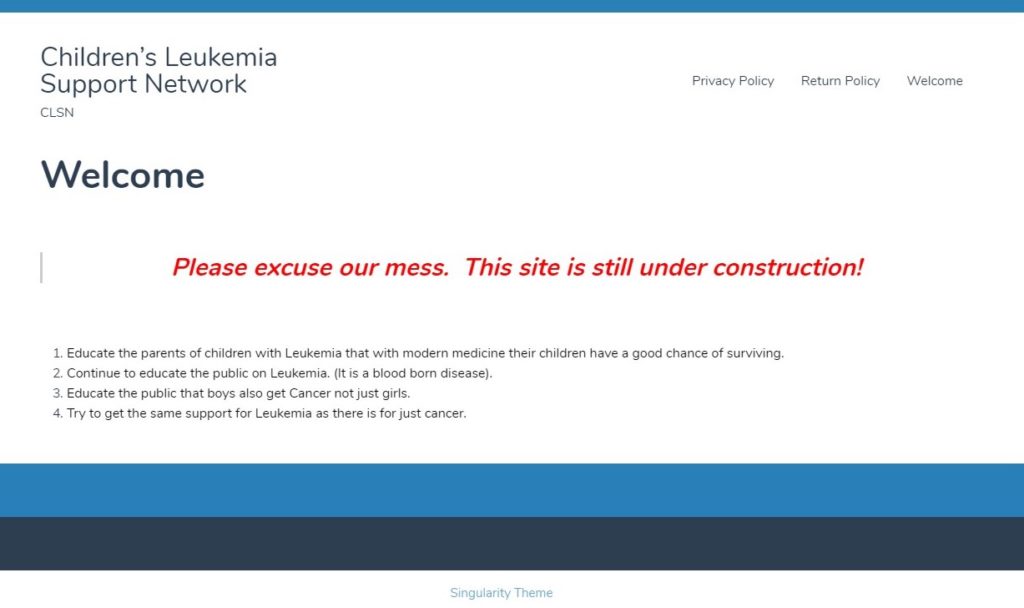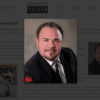This story was published in partnership with the Tampa Bay Times.
Introduction
TAMPA, Fla. — The telemarketer asked Eric Thomas a question: Would he consider donating money to the Children’s Leukemia Support Network?
Thomas himself was battling a rare and incurable form of leukemia. His wife, Rhonda, had endured two bouts with breast cancer. The Florida retirees had medical bills, but they were manageable, thanks to Thomas’ insurance as an Army veteran.
So Thomas told the telemarketer he’d help. He sent $100 on Oct. 1, 2018.
But virtually none of his money helped children with leukemia or their parents, who often face crippling medical expenses and crushing anxiety.
About $84 of Thomas’ contribution landed with a network of companies run by a Las Vegas-based businessman, Richard Zeitlin.
The remainder? Almost all of it funded Children’s Leukemia Support Network salaries, bank fees, payroll taxes and other overhead expenses.
“I feel cheated,” Thomas said in a recent interview at a cancer treatment center in Tampa. “Misused.”
Thomas is one of thousands of Americans who’ve opened their wallets to groups that sound like charities but actually are political action committees. The groups raise money in the name of leukemia-stricken children, breast cancer survivors, police officers, firefighters and struggling military veterans, among others. Little if any of the money donors provide goes toward the causes being championed.

This is part of a trend. During the last four years, the U.S. saw a significant spike in the number of PACs that raise most of their money from small-dollar donors before plowing much of it back into salaries, administrative costs and raising more cash, according to a Center for Public Integrity analysis of more than 68.7 million campaign finance records compiled by the Center for Responsive Politics.
PACs that contract with Zeitlin account for about half of that spike, making him a major player in the political world. For more than two decades, he raised tens of millions of dollars in the name of nonprofits before shifting to PACs.
By and large, nonprofits and political committees are allowed to spend almost everything they collect on fundraising. What’s not legal: lying to prospective donors about how their money will be used. It is up to a patchwork of federal and state investigators, each with different jurisdictions and responsibilities, to police solicitors. This is often difficult for agencies with limited resources.
Some of the organizations that have contracted with Zeitlin’s firms over the years have been, or currently are, run by people with troubled histories: a disgraced Florida lawyer and a board member of a charity that was shut down by regulators. Four of the groups are run by a Las Vegas police officer who was accused in a federal lawsuit in 2018 of using “excessive and unreasonable force” when he shot a man armed with a knife six times, killing him.
Since 2006, Zeitlin’s telemarketing companies have raised at least $121.3 million for nonprofits, according to a Public Integrity review of hundreds of state disclosures. More recently, political committees that contract with his companies have raised more than $31.8 million, according to financial disclosures filed with federal regulators. Of the combined $153.1 million, Zeitlin’s companies were paid about $133.1 million, Public Integrity’s analysis shows.
Other telemarketers charge a steep premium for fundraising for their charity clients, as a previous Public Integrity analysis found. But Zeitlin’s companies charge about 86 percent — one of the highest percentages among fundraisers who’ve brought in at least $10 million.
One nonprofit watchdog says the most effective organizations spend no more than 25 percent of their expenses on fundraising and overhead.
Zeitlin’s attorney said in a recent letter to Public Integrity that fundraising for small and medium charities is “overhead intensive.” Zeitlin, he said, is a “successful entrepreneur and businessman” who has raised millions of dollars for charities that they otherwise would not have had.
Thomas was angry when told by a reporter how the Children’s Leukemia Support Network spent his money.
“My $100? Big deal. It doesn’t change my life,” Thomas said. “But on a bigger scale, those millions of dollars came from somebody. What kind of a society, what kind of a culture, what kind of a country are we being when we accommodate those kinds of things to go on?”
Help wanted
A 7-year-old boy named Sriyam Sriadibhatla is fighting for his life across the Florida peninsula in Delray Beach, but his parents might not be able to afford the expensive medicine needed to treat his cancer.
Sriyam is among more than 26,000 people, many of them children, asking for financial support through GoFundMe as they battle leukemia — but the Children’s Leukemia Support Network does little, if anything, to help them.
Earlier this year, Srujan and Shanthi Sriadibhatla sensed something wrong with their usually rambunctious son. He had trouble getting off the couch, and he wouldn’t play with the other kids at the playground.

Sriyam’s doctor ran tests in January and called that same night. Come to the hospital immediately, one doctor said. Another test, then another, and then, the devastating truth: Cancer had invaded 97 percent of the boy’s bone marrow cells.
Panic gripped the family. They had been planning to return to India, because Srujan Sriadibhatla’s visa was about to expire. He obtained an emergency extension to stay in the United States, but couldn’t keep his information technology job because his visa didn’t allow it. Shanthi had already quit her IT job because of her visa.
No jobs meant no money to pay what would soon be a flood of medical bills.
The first dose of Sriyam’s chemotherapy cost $93,000. Srujan’s insurance covered most of it.
But the second dose made the boy gravely ill, forcing doctors to prescribe a new drug for future treatments.
Srujan’s insurance initially didn’t cover the substitute drug, which costs about $16,000 a dose. It’s made by a single manufacturer and produced in such small quantities that it usually sells out within an hour of becoming available. Sriyam needs six doses.

(Photo by Susan Stocker for the Center for Public Integrity)
A family friend started a GoFundMe page for Sriyam, which had raised $87,000 as of this week. The Sriadibhatlas had already tapped into that for some initial hospital visits. Srujan has since secured permission to work again.
Still, Shanthi said, “It’s a nightmare.”
Sriyam, tall and slender with glasses and thinning hair, climbed on the couch behind his parents, chattering about airplanes — his favorite topic — and cooking meals with his family. They live in an apartment in a gated apartment complex in Delray Beach.
Shanthi, who must monitor Sriyam’s temperature every four hours, is exhausted.
Awake late each night, she turns her anxiety into art, which hangs on the walls inside their apartment.
At the head of the dining table hang five etchings, one more intricate than the next, of women performing traditional Indian dances.
The Sriadibhatlas are thankful for the money friends have donated, but they have no idea how much the next two-and-a-half years of treatment might cost.
Empty promises
Eric Thomas said a telemarketer made a pitch last fall that made him believe he was helping families like the Sriadibhatlas. He then received a letter signed by the person who contracts with Zeitlin’s companies.
“Children with Leukemia need your support,” wrote William Christopher Pollock, an officer with the Las Vegas Metropolitan Police Department, who identifies himself as president and CEO of the Children’s Leukemia Support Network, a political action committee.
He and his wife, Kecia Pollock, together run four super PACs, including one that raises money for police officers.
It is unclear who physically sends the pledge letters like the one signed by Pollock. Letters obtained by Public Integrity from six PACs that contract with Zeitlin have nearly identical formats and fonts.

In the letter for his leukemia group, William Pollock tells donors the network will “provide the parents of children stricken with Leukemia emotional support and information on new discoveries and cutting-edge treatments” and “continue the fight for further funding and research.”
On its website, the PAC says it aims to “educate the public that boys also get Cancer not just girls” and “try to get the same support for Leukemia as there is for just cancer.”

The Pollocks say they want to “educate the public that boys also get Cancer not just girls,” in this screenshot of the Children’s Leukemia Support Network. (Website screenshot)
About 86 percent of the money raised by the Children’s Leukemia Support Network went to Zeitlin’s companies, according to Federal Election Commission filings. That’s roughly the same percentage that about three dozen organizations that contract with Zeitlin firms pay for fundraising and other services, according to an analysis of federal and state disclosures.
The Pollocks pocketed about a third of what money was left over. They also got steady paychecks from their other PACs that contract with Zeitlin’s companies: the Firefighters Alliance of America, the Heart Disease Network of America and the Police Officers Defense Alliance.
“Firefighters Alliance of America’s mission is to ensure that government pass legislations [sic] that will provide easier access to full medical benefits to firefighters who suffer from heart and lung disease,” William Pollock wrote in a letter to a donor who pledged three contributions totaling $1,200 in late 2018. The donor declined to be interviewed or identified but shared the letters he received from three of the Pollocks’ PACs.
The letter from the Firefighters Alliance urges donors to ask their representatives in Congress to support House Resolution 1884, the Federal Firefighters Fairness Act of 2017, a failed bill that would have provided protections to federal firefighters diagnosed with heart and lung diseases and certain cancers.
As a super PAC, the Firefighters Alliance could have spent money supporting any of the 32 co-sponsors of H.R. 1884 in the House of Representatives — but it didn’t. It supported just one politician: Republican Dean Heller, a U.S. senator from Nevada who was ousted in the 2018 midterm elections.
Heller also was the only beneficiary of spending by two of the Pollocks’ other PACs. He could not be reached for comment.
In a separate fundraising letter, William Pollock wrote on behalf of the Police Officers Defense Alliance to urge prospective contributors to support law enforcement officials “who have sworn an oath to provide safety to us as citizens, [and] we will make our communities a safer place and continue to work for the betterment of society.”
The telemarketing calls and follow-up letters signed by Pollock worked.
Bill Guzules in Santa Clara, Calif., for example, said he gave $500 to the Pollocks’ Firefighters Alliance because he wanted to help firefighters after his softball teammate’s house burned down in the wildfires that ravaged the state last year.





Join the conversation
Show Comments
If you don’t know who’s you giving To, DON’T GIVE. …..PERIOD. .
Hi. We have similar things here in the UK. Poly bags for breast cancer relief for example, only 2% of the yield goes for that. Usually collecting rags £6-10k/tonne, over a large town. Usually delivered by kids at 1 penny a bag, collected in vans with removable magnetic signs.
Another scan is being a registered charity. I work for one. They’ve recently cut the food budget for our clients to £2.49/day! They pay £1-1.2k per week to live in this case home.
There’s greedy people anywhere you look.
SLEAZBAG
..and that is why i never ..ever gave my money to anyone……
When a telemarketer calls I answer “Police Department” They hang up abruptly and delete my number.
sounds like the police dept/unions are very aware and of the corruption and enable it..
Keep up the good work, Sooner or later law will catch them.
When pseudo-charities and PACs get in bed together, oh boy, we’re screwed.
THE “CATHOLIC CHURCH” PERFECTED THIS “SCAM” MANY CENTURIES AGO, REMEMBER A “VOW OF POVERTY”, ONE OF THE WEALTHIEST ORGANIZATIONS ON THE PLANET.
I used to work there, before they started collecting for PACs and before I realized charities were only getting about 4%. It really is that bad. Only 3 or so people there were making making more than $50k as well. It pretty much ALL went to Rick!